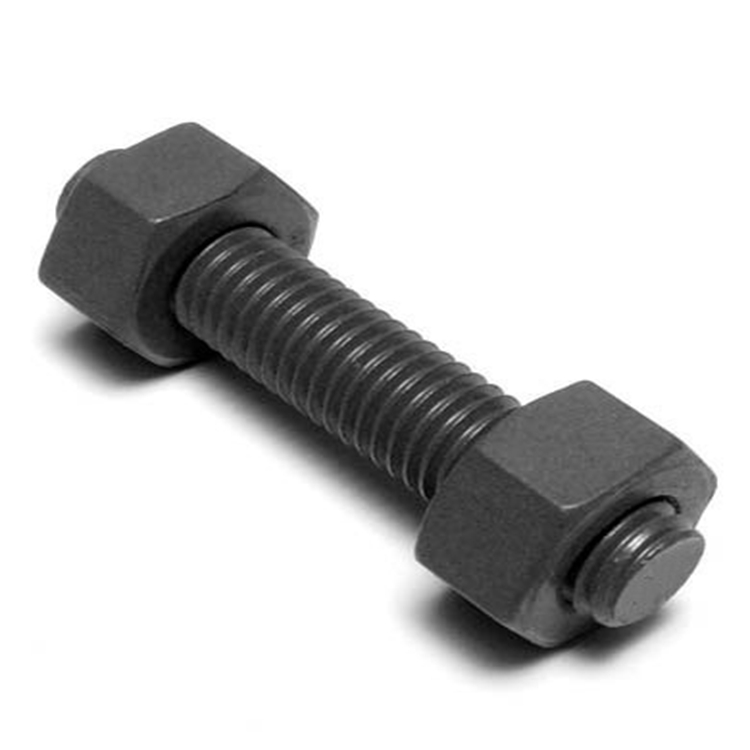custom 2 stud bolt 10mm
Nov . 11, 2024 15:42 Back to list
custom 2 stud bolt 10mm
Understanding Custom 2 Stud Bolt 10mm A Comprehensive Guide
When it comes to industrial applications, the significance of bolts cannot be overstated. Among the myriad types of fasteners available, the custom 2 stud bolt 10mm has carved out a niche that caters to specific needs in various industries, particularly in construction and manufacturing. This article explores the characteristics, benefits, applications, and considerations involved in utilizing a custom 2 stud bolt of 10mm diameter.
What is a Custom 2 Stud Bolt?
A custom 2 stud bolt is a type of fastening device that typically features two projecting parts or 'studs' designed to fit into correspondingly female parts, effectively locking components together. The measurement of 10mm refers to the diameter of the bolt, which is a critical dimension influencing its strength and compatibility with other components. Customization implies that these bolts can be tailored to meet specific requirements of the application, such as length, head design, or thread type.
Key Characteristics
1. Material Custom 2 stud bolts can be manufactured from various materials depending on the intended application. Common materials include stainless steel for corrosion resistance, carbon steel for strength, and alloys for specialized requirements.
2. Thread Type The design of the threads can affect how the bolt engages with nuts or threaded components. Standard threads might be used, but custom threading can also be implemented based on service conditions.
3. Finishing The surface finish is crucial for performance and longevity. Options range from plain finishes to coated or plated versions, providing additional resistance to wear and corrosion.
4. Length and Diameter While the diameter is fixed at 10mm in this case, the overall length of the studs can be customized depending on the needs of the application.
Benefits of Using Custom 2 Stud Bolts
1. Precision Fit Customization allows for a precise fit within assembly components, ensuring stability and integrity of structures or machines.
2. Enhanced Load Bearing With the correct specifications, custom 2 stud bolts can provide enhanced load-bearing capabilities, crucial in high-stress environments.
4. Versatility The adaptability of custom bolts to different applications makes them an ideal choice for engineers and manufacturers who require flexibility in design.
custom 2 stud bolt 10mm

Applications
Custom 2 stud bolts are ubiquitous in various industries due to their versatility. Some prominent applications include
1. Construction In building projects, these bolts are used to secure structural components, ensuring stability and safety within frameworks.
2. Automotive Industry They are often employed in assembling engine parts or as components of suspension systems, where they can withstand high vibrations and loads.
3. Aerospace Custom bolts are critical in aircraft manufacturing, offering lightweight yet strong fastening solutions that meet strict safety regulations.
4. Machinery and Equipment Industrial machinery uses custom bolts for securing various parts, thus playing an integral role in the efficiency and longevity of the equipment.
Considerations When Choosing Custom 2 Stud Bolts
1. Load Requirements Understanding the load that the bolt will bear is imperative in selecting the exact specifications needed.
2. Environmental Conditions Assessing the environment in which the bolt will operate (humidity, temperature, exposure to chemicals) is critical for material selection.
3. Compliance Standards Certain industries have stringent regulations regarding fasteners, and ensuring compliance with these standards can influence the design and material selection.
4. Cost-Effectiveness While custom bolts may be more expensive than standard options, their ability to enhance performance and longevity can provide greater value over time.
Conclusion
The custom 2 stud bolt 10mm serves as a testament to the importance of customized solutions in modern engineering and manufacturing. Understanding its features, benefits, applications, and the critical considerations involved in its selection empowers engineers and manufacturers to make informed decisions. As industries continue to evolve, the role of such specific fasteners will undoubtedly remain vital in ensuring the safety, efficiency, and performance of various projects.
Latest news
-
High-Quality Panel Stud Bolt Reliable Panel Stud Bolt Factory & Suppliers
NewsJul.08,2025
-
High-Precision Fine Thread Locknuts Manufacturer & Supplier Custom Solutions
NewsJul.08,2025
-
PH Imperial Stud Bolt – High Strength Fasteners from Leading Supplier & Factory
NewsJul.07,2025
-
High-Quality Allen Wrench Bolts Leading Factory, Company & Suppliers
NewsJul.07,2025
-
Wholesale Ball Stud Bolt - High Quality Supplier & Factory Price Reliable Wholesale Ball Stud Bolt Company
NewsJul.06,2025
-
High-Strength Alloy Bolts Manufacturer & Supplier Quality Alloy Fasteners Factory
NewsJul.06,2025
